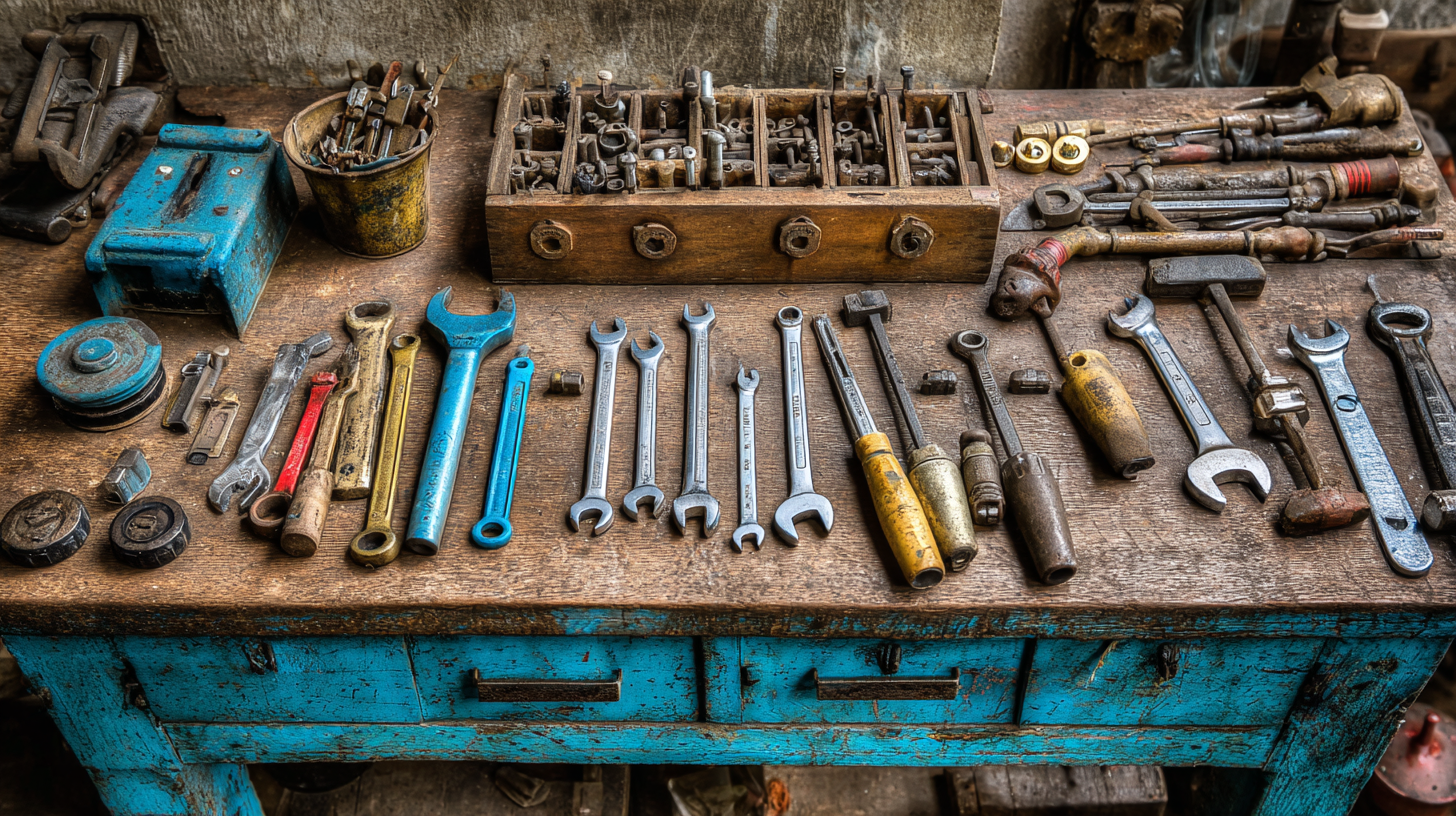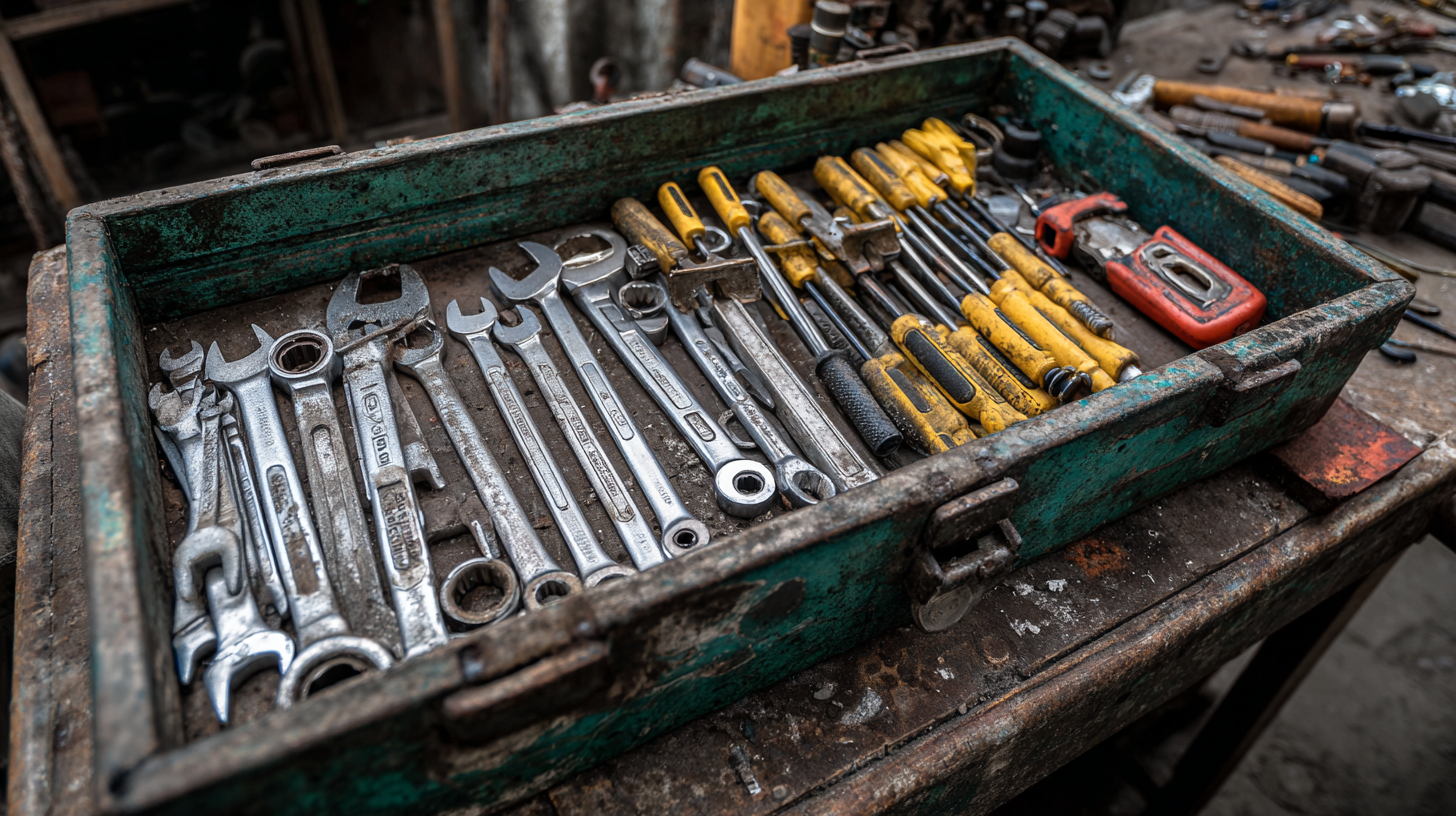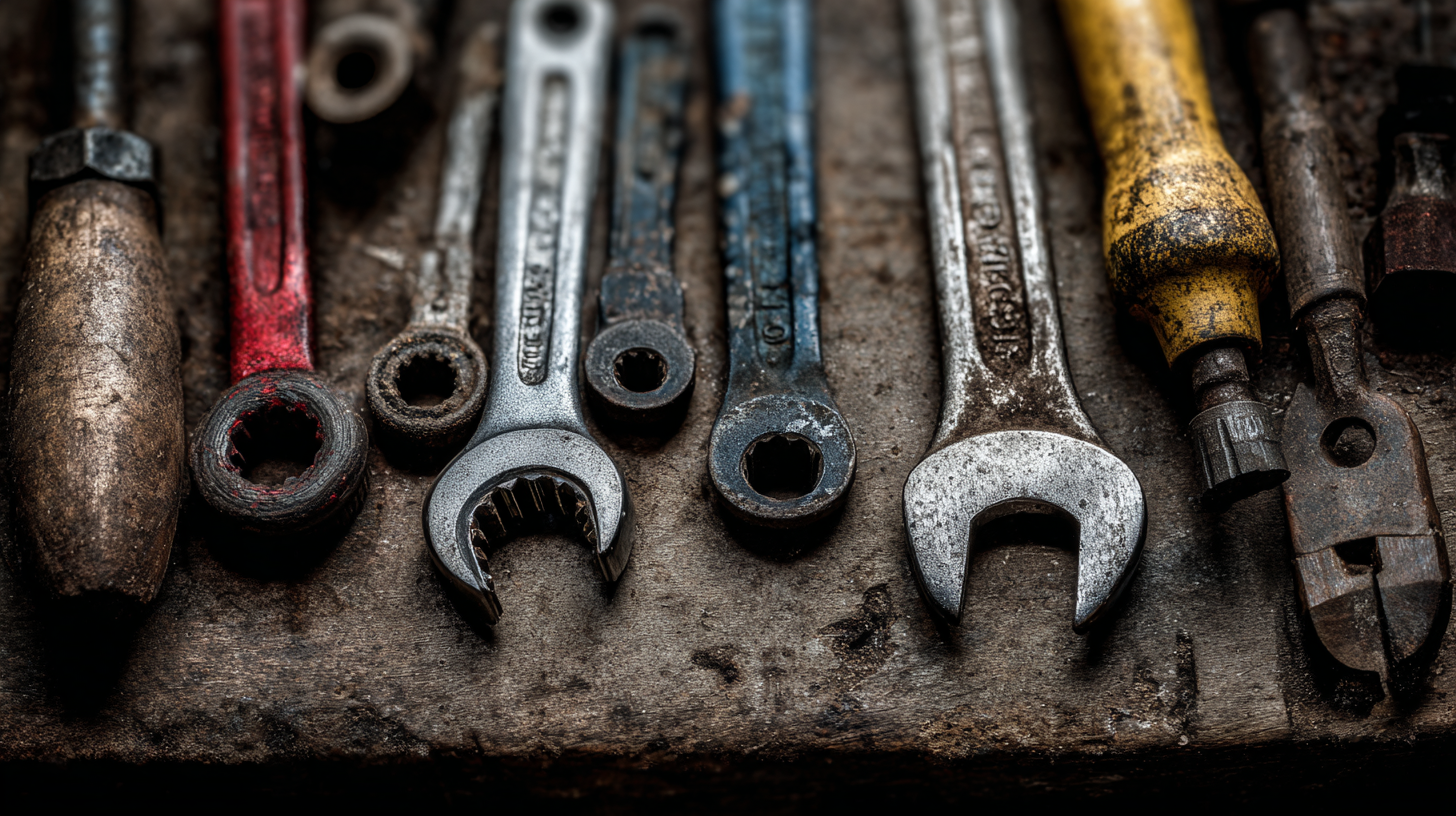In the world of automotive repair and maintenance, the right mechanic tools are essential for achieving efficiency and precision. However, even the best tools can present common issues that challenge both novice and experienced mechanics alike. This blog aims to explore those challenges, from tool durability to compatibility with various vehicles, and provides practical solutions to overcome them. Drawing from insights rooted in China's top factories, renowned for their engineering prowess, we will delve into how these globally trusted products can be utilized effectively. By understanding the common pitfalls and leveraging the strengths of quality mechanic tools, you can enhance your repair skills and ensure a smoother workflow in your garage or workshop.

When it comes to mechanic tools, understanding common problems and how to address them is crucial for both professionals and DIY enthusiasts. One significant issue is tool compatibility. Research shows that 34% of mechanics reported frustration with tools that do not fit standard sizes or mounts, often leading to wasted time and effort. Investing in high-quality, versatile tools can mitigate this problem.
For example, socket sets that adhere to both metric and imperial sizes tend to be more user-friendly, catering to a wider range of vehicles.
Another prevalent challenge is durability. According to a recent industry report, about 40% of tool failures occur due to inadequate materials and manufacturing processes. Professionals often grapple with tools that fail under heavy use, resulting in increased downtime. To overcome this, opting for tools made from high-grade steel or other advanced materials can ensure longevity and reliability. Selecting trusted brands with rigorous testing protocols can further reduce the likelihood of breakdowns, ultimately enhancing productivity on the job.
 When it comes to car repairs, selecting the right mechanic tools is crucial. Whether it's a simple oil change or a complex engine overhaul, having the appropriate tools can make the difference between a successful repair and a frustrating experience. One common issue faced by many enthusiasts is not knowing which tool is best suited for a particular job. To mitigate this, understanding the specific needs of each repair is essential. For example, using a torque wrench for specific bolt specifications ensures proper tightening, while a multimeter is invaluable for diagnosing electrical issues.
When it comes to car repairs, selecting the right mechanic tools is crucial. Whether it's a simple oil change or a complex engine overhaul, having the appropriate tools can make the difference between a successful repair and a frustrating experience. One common issue faced by many enthusiasts is not knowing which tool is best suited for a particular job. To mitigate this, understanding the specific needs of each repair is essential. For example, using a torque wrench for specific bolt specifications ensures proper tightening, while a multimeter is invaluable for diagnosing electrical issues.
Moreover, keeping a well-organized tool set tailored to your most frequent repairs can save time and reduce confusion. Categorizing tools based on their function, such as hand tools, power tools, and diagnostic equipment, simplifies access and enhances efficiency. Additionally, online resources and community forums can provide insights into which tools work best for specific repairs, helping both novice and experienced mechanics make informed choices. By identifying the right tool for each task, you can streamline your repair process and minimize potential setbacks.
Proper maintenance of mechanic tools is essential for ensuring their longevity and optimal performance. One of the most common issues mechanic tools face is rust and corrosion due to moisture exposure. To combat this, it's important to clean your tools after each use. Wipe down metallic surfaces with a damp cloth and then apply a thin layer of oil or a dedicated tool lubricant. This not only protects against moisture but also creates a barrier that prevents dust and dirt from accumulating.
Another key tip for maintaining your mechanic tools is to store them correctly. Invest in a dedicated toolbox or storage system that keeps tools dry and organized. Using foam inserts or magnetic strips can prevent them from moving around and getting scratched. Additionally, regularly checking your tools for wear and tear is crucial. Replacing worn-out parts promptly ensures that your tools remain effective and safe to use. By following these simple practices, you can extend the life of your tools and ensure they perform well when you need them the most.
When using mechanic tools, safety precautions are critical to ensure not only efficient work but also the well-being of the user. First and foremost, wearing appropriate personal protective equipment (PPE) such as gloves, goggles, and steel-toed boots is essential. These items help protect against injuries from sharp tools, flying debris, and heavy objects that could cause serious harm. Additionally, keeping long hair tied back and avoiding loose clothing can prevent accidents and entanglement with machinery.

Another important safety measure is to maintain a clean and organized workspace. This minimizes the risk of tripping hazards and allows mechanics to quickly access tools without searching through clutter. Regularly inspecting tools for defects or wear is equally important; using damaged tools not only reduces efficiency but can lead to accidents. Furthermore, understanding the operation of each tool you use is paramount—always read manuals or instructions for complex equipment before use. By adhering to these safety precautions, both novice and experienced mechanics can significantly reduce the likelihood of injuries and accidents in the workshop.
When it comes to investing in mechanic tools, choosing quality over price is essential for ensuring long-term satisfaction and performance. Cutting corners to save money may result in frequent replacements, increased costs over time, and frustration in your projects. Instead, focus on investing in tools that are known for their durability and reliability. Remember, the most effective tools can significantly enhance your efficiency and productivity.
**Tips:** One effective strategy is to read reviews or seek recommendations from professional mechanics before making a purchase. Additionally, consider the long-term value. A slightly higher upfront cost for a quality tool may save you money in the long run by avoiding the need for replacements.
Furthermore, always keep an eye out for reputable brands that offer warranties. This not only provides peace of mind but also reflects the manufacturer's confidence in their product. Building a toolkit with high-quality tools might take time and investment, but the advantages of durability and effectiveness will pay off with consistent use in the years to come.
| Issue | Description | Solution | Investment Tips |
|---|---|---|---|
| Rust and Corrosion | Tools can rust over time if not stored properly. | Use protective oil and store in a dry place. | Invest in stainless steel or coated tools. |
| Worn Out Parts | Frequent use can lead to wear and tear on tools. | Regularly inspect and replace worn parts. | Choose tools with replaceable components. |
| Incorrect Tool for the Job | Using the wrong tool can damage both the tool and the item being worked on. | Always refer to tool specifications and guidelines. | Invest in a versatile tool kit for various jobs. |
| Poor Ergonomics | Tools that are uncomfortable to use can lead to fatigue. | Choose ergonomically designed tools. | Consider the handle design and weight distribution when buying. |
| Inadequate Storage | Tools can become damaged when not stored properly. | Use toolboxes and organizers to keep tools safe. | Invest in sturdy storage solutions that protect tools. |
Contact
KYOCERA SGS Precision Tools, Inc.
(330) 686-5700
150 Marc Drive
Cuyahoga Falls, OH 44223
Products
Resources